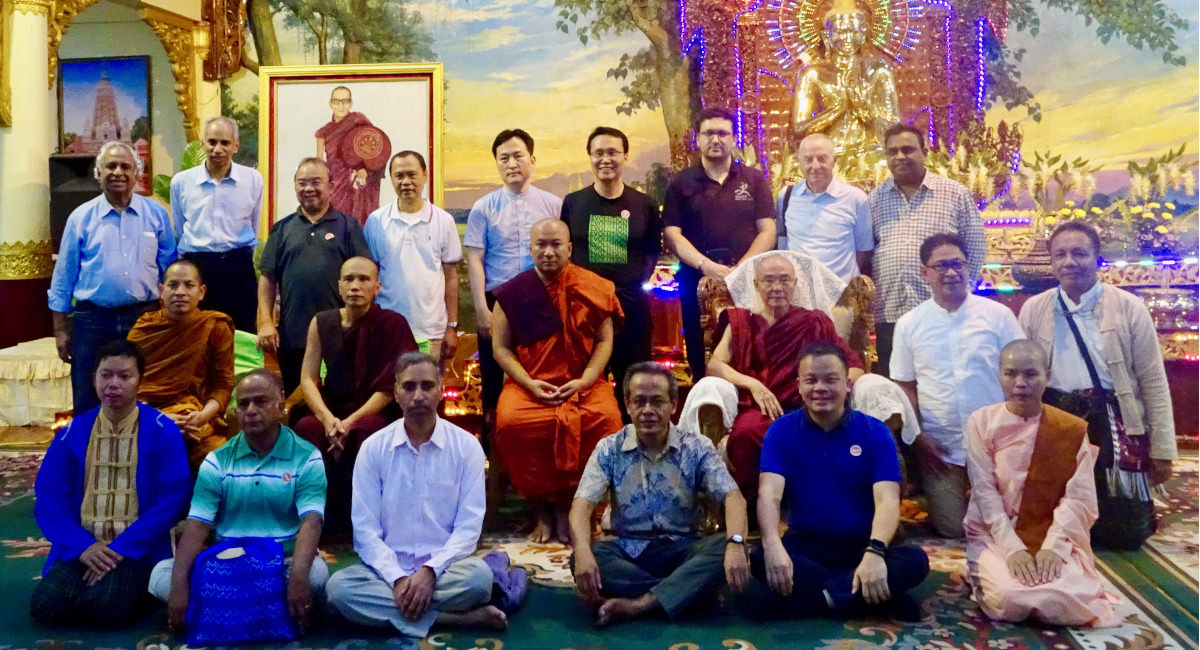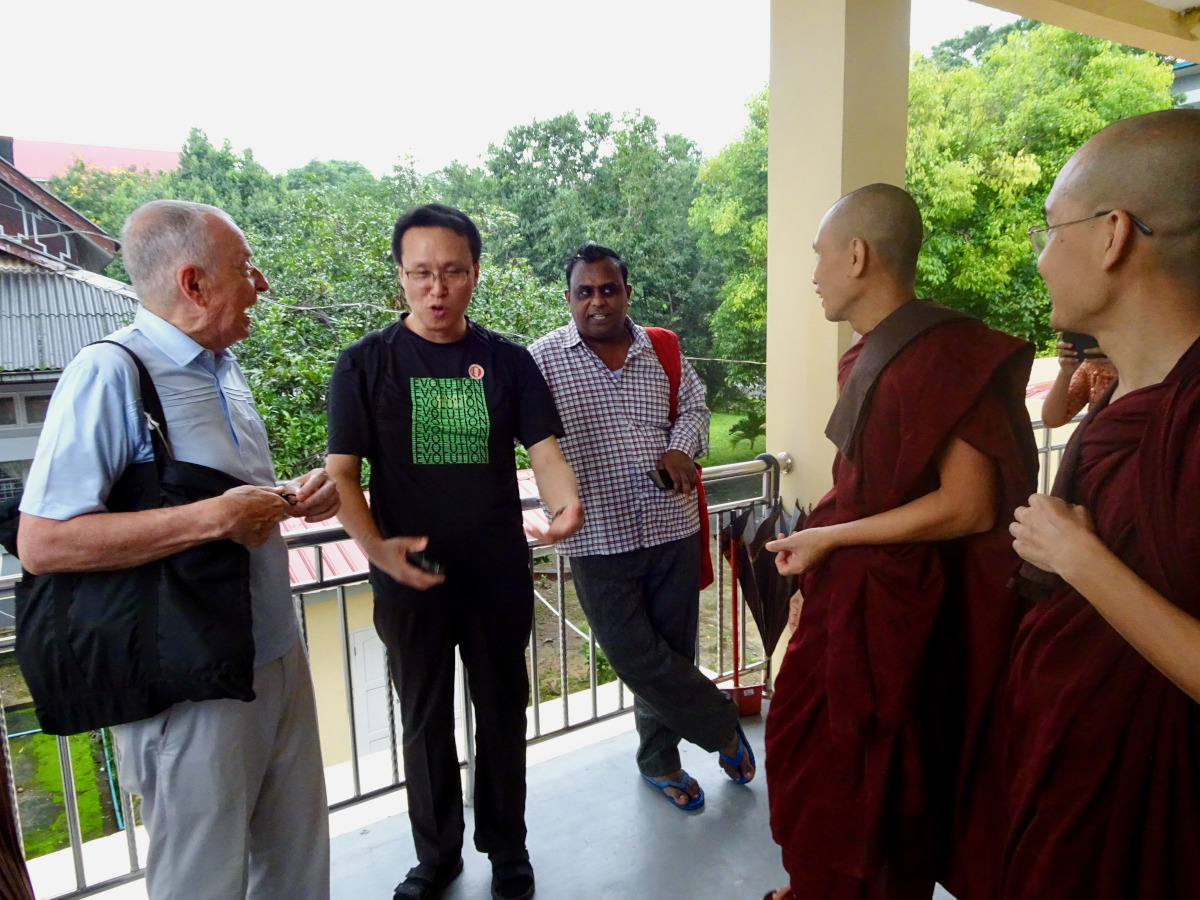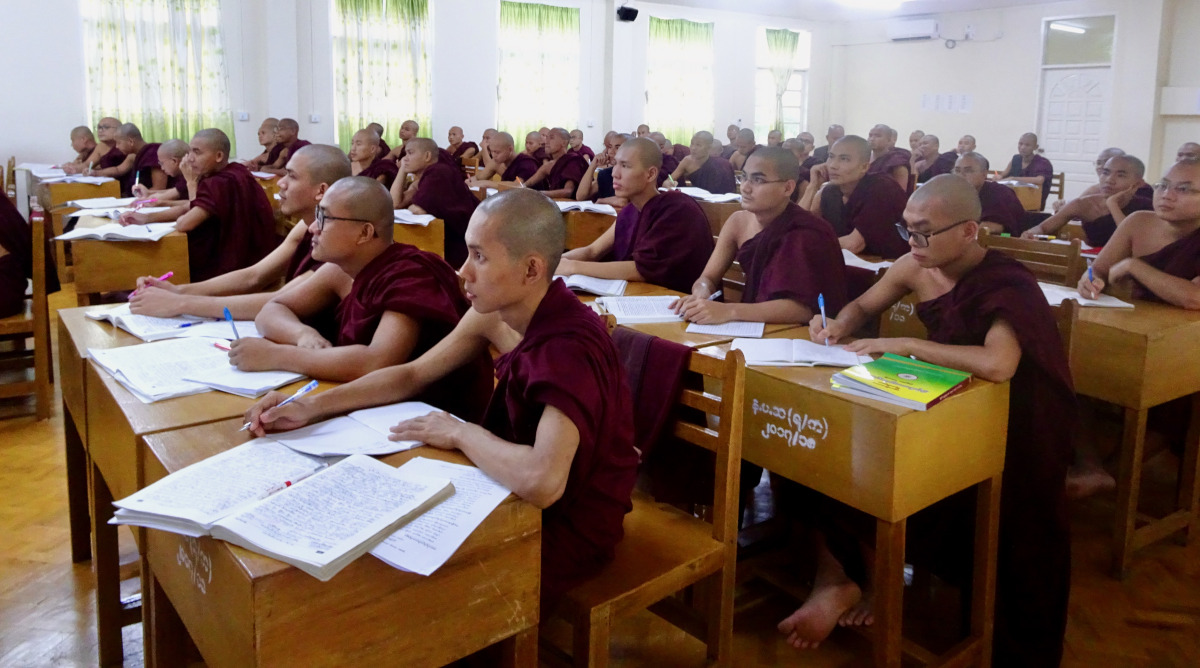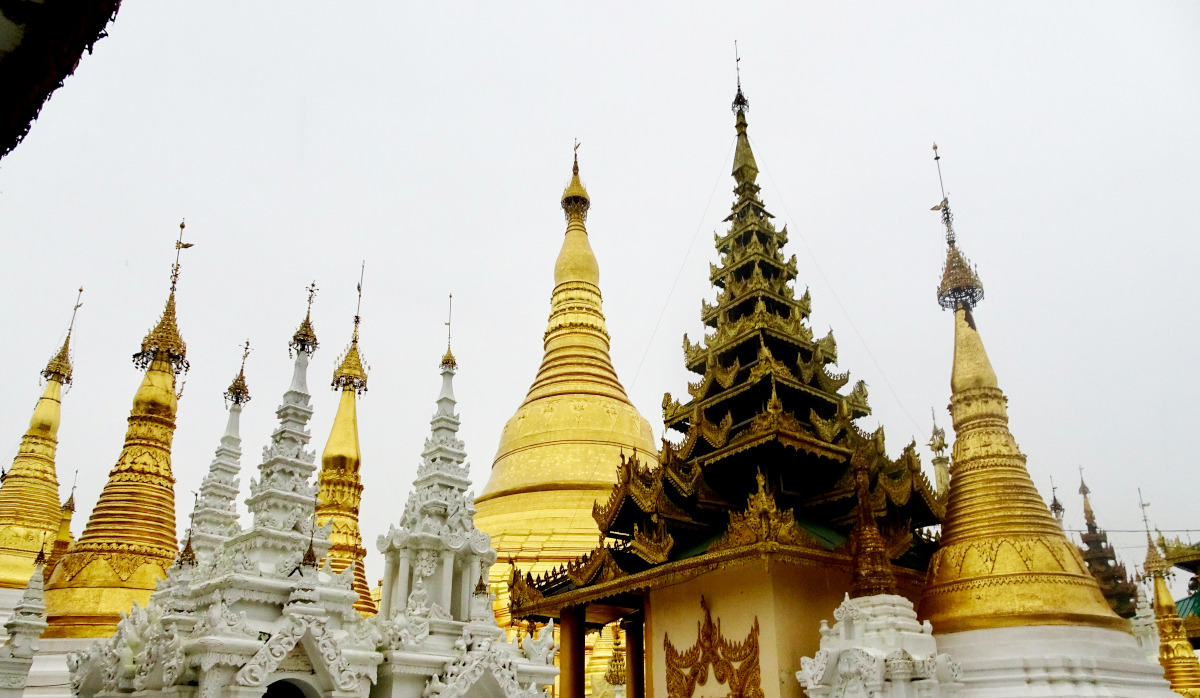
“It was a well-knit group in heart and mind and we felt at home with each other,” said Fr In-gun Kang SJ, JCAP Coordinator for Buddhist Studies and Dialogue.
Myanmar is famous for its meditation centres and this gathering focused on Buddhist meditation. Ven Dr Ashin Dhammacara talked about the textual linkage of a passage in the Buddha Dhamma found in the Rock Edict of Asoka (Bairat) in the third century BC in India, which was also recorded in the golden plates of Sri Ksetra in Myanmar (third to ninth century) and in the inscriptions in Yatanabon (1857-1885) and in Yangon.
Ohn Mar Thant, who has been practising Buddhist meditation for more than 40 years, shared that through the different methods of meditation, she is able to find the meaning of life, which is “to be free from suffering”.
Fr Lawrence Soosai SJ shared about the Mind Development Program he developed and successfully implemented in several schools in northern India. The programme emphasises concentration, value realisation and character formation. Fr Soosai desires not only to promote psycho-spiritual development but also interreligious understanding and harmony. Many agreed that it would be beneficial to offer this programme in Jesuit schools in Asia Pacific and to collaborate with the Ignatian Spirituality Network and JCAP Education Secretaries to make this happen.
Fr Anh Tran SJ’s presentation compared Buddha Nature with the Christian doctrine of Imago Dei. “As Buddhists look for the Buddha Nature in all sentient beings, for Christians this would be similar to the idea of ‘finding God in all things.’ To recognise that the Buddha’s presence is found everywhere is akin to seeing the grace of God working in and through nature,” he said.
The group also discussed the difficulties encountered by Christians in practising Zen meditation. Fr Jerry Cusumano SJ cited psychological studies that suggest a lowering of motivation by those who use meditation rooms in companies like Google. Others added that the mindfulness movement can have similar effects and there are many pitfalls to meditation. Ven Sovechea also mentioned the difficulties or dangers arising in the course of meditation.
The diversity of the group added to the wealth of discussions and reflections. The Christian participants learnt about Buddhism, but the Buddhist participants also learnt about Christianity and were in fact able to resonate with the Universal Apostolic Preferences (UAPs) presented by JCAP President Fr Tony Moreno SJ.
Ohn Mar Thant said that she feels one with the Jesuits in the UAPs. “The wording may be different, but the message is the same,” she said. “In Buddhism, we also need to take care of the society and the world; in our practice, when we help the poor, we help the Buddha.”
Fr Soosai is happy to share the UAPs with Buddhist friends and wishes to share them as well with Hindu and Islam friends in India. However, he pointed out that the “the first UAP shows ‘a way’ to God, not ‘the way’ to God” citing the common values evident in dialogues with Christians and Buddhists as a good example.
Cambodian monk Ven Sovechea would like to see religious leaders in his country engage in dialogue. “We should be the bridge between Buddhism, Christianity and Islam,” he said.
To deepen their interfaith encounters, the group visited important Buddhist sites in Yangon, such as the Kaba Aye Pagoda, Maha Pasana Guha Cave, Chanmyay Meditation Center and Shwedagon Pagoda. They also visited the State Pariyatti Sāsana University where more than 400 monks study and practise Buddhism. From undergraduate through doctoral studies, monk-students go through a combination of meditation practice, Buddhist studies and social engagement. It was a pleasant surprise for Fr Kang and Fr Soosai to see on campus some of the faculty-monks they had studied with in Sri Lanka 12 years ago.
The participants felt very much enriched by the meeting. “It was a good chance for me to visit Buddhist places, listen to them and understand them,” shared Deacon Pius Than Naing Lin SJ.
Fr Hermes Bajao Sabud SM described the gathering as “a new way of being” and expressed support for the UAPs.
“Although we are from different backgrounds, I feel we are all interconnected with each other through this gathering,” said Fr Kang.
First-time participant Ohn Mar Thant certainly felt this connection. “It was the first time for me to attend a gathering with Christian Fathers,” she said. “Now I understand how much you love God and I also feel the same love.”









